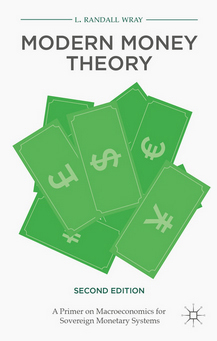
Research Topics
Publications on Currency regimes
There are 3 publications for Currency regimes.
-
Monetary Power and Vulnerability to Sovereign Debt Crises: Rethinking the Global Financial Architecture
Working Paper No. 1068 | December 2024Originally issued as EDI Working Paper No. 17, March 2024
This paper challenges the prevailing view in the sovereign debt literature by arguing that sovereign debt markets, in many respects, behave similarly to other credit markets. These markets are hierarchical rather than flat, inherently hybrid in nature, blending elements of public order and private markets, and regularly suffer from liquidity stress. Therefore, sovereigns, similarly to private actors in the market, are subject to liquidity stress and insolvency crises in a way that is integral to the global financial architecture. Critically, the legal and institutional design of the international monetary system exacerbates this stress. Structural asymmetries, notably the uneven distribution of monetary power, lead to liquidity stress being more pronounced in the periphery than at the apex or core of the system, rendering the former inherently more vulnerable to sovereign debt crises.
The paper argues that such considerations should assume a central role in global policy discussions concerning the most appropriate mechanisms for addressing sovereign debt crises. It advocates for a reformed global financial architecture, emphasizing the necessity of a legally binding framework for sovereign debt restructuring that draws upon principles of corporate restructuring law, with the UK Companies Act 2006 (CA 2006) providing relevant analogies. This approach aims to ensure timely, equitable, and efficient restructuring processes, thereby confronting the challenges posed by the current ad hoc and often inequitable sovereign debt restructuring processes.Download:Associated Program:Author(s):Karina Patricio Ferreira Lima -
Exchange-Rate Stability Causes Deterioration of the Productive Sphere and Destabilizes Developing Economies
Working Paper No. 1052 | June 2024For Matías Vernengo and Esteban Pérez Caldentey (2020), the MMT literature overemphasizes the choice of the exchange rate regime and the relevance of a flexible exchange rate regime, as well as the ultimate effect of that choice upon the policy space. In addition, they argue that the role of capital flows is underexplored, and that the relevance of the balance-of-payments constraint is often underestimated. Vernengo and Pérez’s criticism fails to consider that exchange-rate flexibility makes it possible to use flexible fiscal and monetary policies as well, to boost growth and employment, and to reduce the balance-of-payments constraint.Download:Associated Programs:Author(s):Arturo Huerta G. -
Modern Money Theory: A Primer on Macroeconomics for Sovereign Monetary Systems, Second Edition
Book Series, September 2015 | September 2015By L. Randall Wray

In a completely revised second edition, Senior Scholar L. Randall Wray presents the key principles of Modern Money Theory, exploring macro accounting, monetary and fiscal policy, currency regimes, and exchange rates in developed and developing nations. Wray examines how misunderstandings about the nature of money caused the recent global financial meltdown, and provides fresh ideas about how leaders should approach economic policy. This updated edition also includes new chapters on tax policies and inflation.
Published by: Palgrave Macmillan
